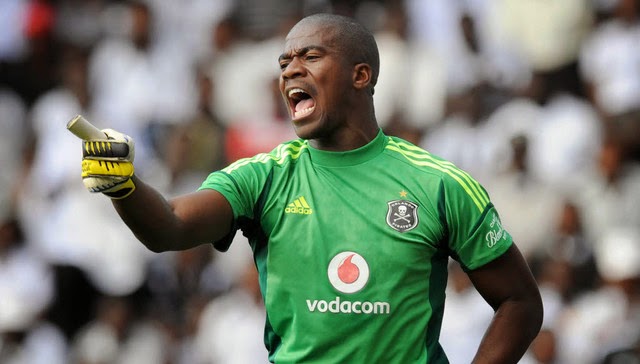Respect right to life
Lazarus Sauti
The murder of Orlando
Pirates and South African national soccer team captain, Senzo Meyiwa, shocked
the world and turned the spotlight once again on crime and the disrespect of
human life in the country.
In a clear case of a
hen eating its own eggs, South Africa continues to disrespect human life as it retains
rates of murder, rape and aggravated burglary that are among the highest in the
world.
South Africans and
other citizens are not free in the country.
This is sad.
So sad in the sense
that citizens do not respect the right to life as they are happy to kill; and
the government is doing nothing to protect and promote the life of both
powerful and powerless citizens.
When it comes to crime,
the most progressive country not only in Southern Africa but in the entire
continent is in a mess. A crisis.
Sadly, crime is
cemented in the neurons of citizens as it has become socially acceptable.
Worse still, South
Africans do not even want to report a crime simply because they do not believe
anything is going to come of it.
This is painful.
Very painful,
especially when police figures indicate that there has been a 5 per cent
increase of crime in the country.
Between April 2013 and
March 2014, for instance, more than 17 000 people were murdered in South
Africa.
Unfortunately, the
government of South Africa has done little to curb such tragic loss of lives.
High and low profile
citizens are perishing but no serious or tangible action is being taken to prevent
crimes.
This is despite the
fact that life is precious and it should be protected.
More, the fundamental right
to life should always be respected.
As Sarah Torre, policy
analyst, puts across that the fundamental right to life does not belong only to
the strong and the powerful, the government of South Africa should ensure that
it belongs to every human being.
This is so as it is the
government’s utmost duty to protect both the strongest and the weakest in
society as well as to recognise the inherent value of all human life.
The brutality of
Meyiwa’s death should force the government of South Africa, together with
relevant stakeholders in the country, to strategies on how to protect the
population from criminals.
It should also force
governments to put mechanisms that not only protect and promote but respect the
right to life as enshrined in the United Nations Universal Declaration of Human
rights as well as the African Charter on Human and Peoples’ Rights respectively.
Article 3 of the United
Nations Universal Declaration of Human Rights provides that “everyone has the
right to life, liberty and security of person, and Article 4 of
the African Charter on Human and Peoples’ Rights provides that “human beings are inviolable. Every
human being shall be entitled to respect for his life and the integrity of his
person. No one may be arbitrarily deprived of this right.”
Basing on these Charters, as they express the noblest
aspiration of men, especially on the assurance of human rights and fundamental
freedoms as well as the safeguarding of peace and security, the South African government should always strive to promote
stability, security, democracy, human rights and economic development in the
country.
More so, the country’s justice system needs to be
improved if people are to have more faith in it and work more closely with it.
The country also needs
to invest more in social workers, improving teachers and front-line health
workers if it is to effectively reduce crime on top of promoting and protecting
human life.
Without doubt, it is
the duty of every South African and other residents in that country to respect
human life.
However, as South
Africa and the world are mourning Meyiwa, the most important question to answer
is what should be done to curb crimes as well as to promote, protect and
respect human life in fickle South Africa?

Comments
Post a Comment